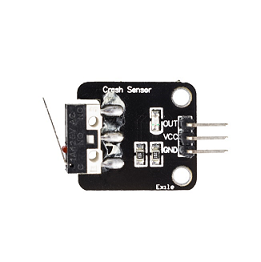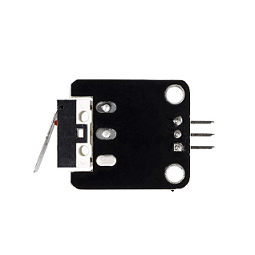Difference between revisions of "Collision Switch Module"
From Wiki
(→Introduction of Pins) |
(→Introduction of Pins) |
||
| Line 15: | Line 15: | ||
<td colspan="2">Introduction of Pins</td> | <td colspan="2">Introduction of Pins</td> | ||
</tr> | </tr> | ||
| − | |||
<tr> | <tr> | ||
<td> | <td> | ||
| Line 24: | Line 23: | ||
</td> | </td> | ||
</tr> | </tr> | ||
| − | |||
<tr> | <tr> | ||
<td> | <td> | ||
| Line 33: | Line 31: | ||
</td> | </td> | ||
</tr> | </tr> | ||
| − | |||
<tr> | <tr> | ||
<td> | <td> | ||
| Line 42: | Line 39: | ||
</td> | </td> | ||
</tr> | </tr> | ||
| − | |||
</table> | </table> | ||
Revision as of 08:26, 3 September 2019
Introduction
The Crash sensor is a miniature snap-action switch. It is also known as micro switch, an electric switch activated by a small physical force.


feature
- Special module with ports compatible with the expansion board of sensor.
- Output low level when the module is activated; keep outputting high level at the state of release.
- Applied in the detection of collision and touching impact.
Introduction of Pins
| Introduction of Pins | |
OUT |
Switching signal output |
VCC |
positive pole |
GND |
negative pole |